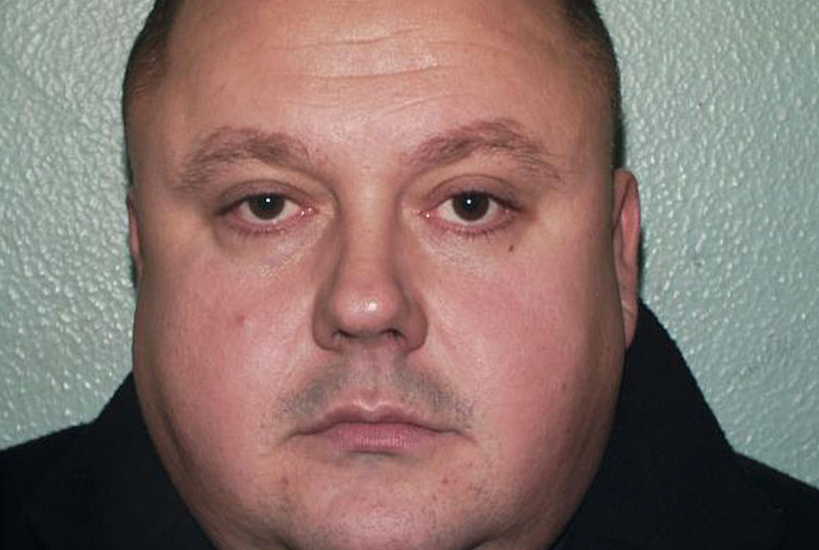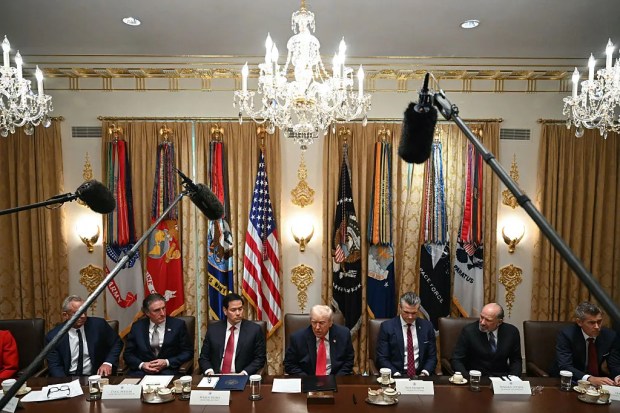There is a rare outbreak of unanimity on social media. Save a few lawyers who – correctly – point out that it is not currently against the law, nobody thinks there is a moral case to allow Levi Bellfield to marry in prison.
For many I am sure it is simple. He is serving four whole-life orders for murder and attempted murder and thus to him everyday privileges are forfeit. As he deprived his victims of them. It is part of his punishment.
It might be surprising that the man who led the team that condemned him to those sentences supports their stance yet disagrees with their reasoning – but I do.
While my life as a murder detective was motivated to a degree by a sense of justice, in which punishment and retribution played an obvious role, much more important was the opportunity to safeguard others.
In the case of a serial predator like Bellfield my greatest satisfaction is in knowing that we protected scores of women who would have suffered at his hands had he not been incarcerated.
When he was free, every unfortunate woman he charmed into a relationship emerged from it with scars, of body and of mind. Let us not forget that our ‘holding charges’ were nine offences of rape and physical assault on three former partners. In comparison to the murders even such a serious indictment was judged sufficiently irrelevant to be left on file after his conviction – notwithstanding that, on its own, it would have resulted in a long prison sentence.
Life as Bellfield’s partner meant giving up your mobile phone, it being replaced by a handset he controlled with just one number (his) in the memory. You had no bank cards, you were restricted to using the cash he gave you. Sex had to be available on demand – for Bellfield but also for his friends when he decreed – and any disobedience was met with violence, humiliation or rape. And sometimes all three.
The stories we were told by former partners were stomach-churning. Being forced to sit on a kitchen stool for more than eight hours, terrified to move and answering calls of nature where she sat. Being turned out into the back garden naked on a winter’s day and locked out of the house for hours. Conversely, being locked in the house for days and forbidden to leave. And the ultimate humiliation of being told to have sex with a friend or acquaintance to repay a debt or favour.
Even when behind bars, on remand awaiting his murder trial, he continued to wield cruel coercive power. In a call to his 16 year-old mistress – a relationship which had started when she was just 14 – he accused her of being out with another man. She pleaded with him that she was at her parents’ house, so he set her a test. He asked her to take her phone upstairs to the bathroom and hold it over the toilet bowl as she flushed it. He explained that he knew the distinctive sound it made and so he could verify her story. Meekly and with a resignation typical of the downtrodden, she complied.
For me the marriage is not the issue, it is just a manifestation a greater ill; one that is applicable not only to Bellfield but to the handful of prisoners like him. That they are permitted to continue to have access to vulnerable women despite having been convicted and imprisoned for offences against them.
And that will not be addressed by provisions in the Victims and Prisoners bill which will forbid those serving whole life orders from marrying. That is a start and a sensible restriction, sure. But it applies only to a tiny number of cases involving impressionable women and controlling, narcissistic, prisoners. Can anybody think of a publicised case before Bellfield?
The stories we were told by former partners were stomach-churning
The criminal justice system as a whole should focus on the protection of the vulnerable inherent in the imprisonment of these predatory men. The effect of coercive control on the mental well-being of survivors is universally accepted and appreciated. The system is therefore failing them if it permits the perpetrators to continue with their abuse from inside prison. Letters sent by inmates are screened and will be refused if the content might be harmful. So why do we permit telephone calls during which the predator has complete freedom to abuse, control or groom new victims?
These unlikely marriages are but one manifestation of the ability of the imprisoned to exert control beyond their confinement – but they are rare and extreme. Where a prisoner has been convicted for offences of abuse, the ban ought not be restricted to marriage but extend to all forms of contact whereby abuse could be effected or control exerted.
A prison sentence should keep women safe and we should not allow these despicable men to continue their offending from behind bars.



















